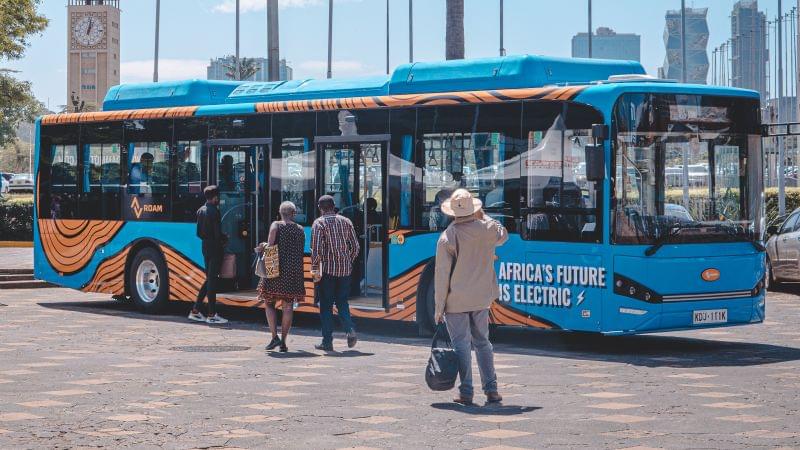Electric buses could help solve the problem. Today Bhattacharya is the CEO and co-founder of BasiGo, a mobility startup racing to electrify the city’s buses. The company is not alone. Swedish-Kenyan electric vehicle manufacturer Roam also has its eyes set on Nairobi’s mass transport sector. Both are rolling out fleets of buses this year that could mark the start of a new chapter for city’s famous matatu culture.
During the early days of the coronavirus pandemic in Nairobi, Kenya, something improbable happened: a mountain appeared. To curb the transmission of the virus, authorities called on the city’s thousands of private bus operators to cease trading. “Within three days, the air completely cleared,” recalls entrepreneur Jit Bhattacharya. “You could see Mount Kenya … crystal clear,” some 90 miles away.
Bhattacharya also saw an opportunity. Kenya produces 90% of its electricity from renewable sources – mostly geothermal and hydropower – and has surplus grid capacity, yet it imports nearly all its petroleum fuels. What if clean energy could be channeled into the transport sector? Maybe it could help the city clean up its act. Maybe Mount Kenya could become a permanent feature for Nairobi once more.
The Kenyan capital is home to over five million people, and matatus, privately owned minibuses and shared taxis, “are critical to the way people in Nairobi get around,” explains Christopher Kost, Africa program director at the Institute for Transportation and Development Policy. “In the city, we have 40% of trips on public transport.”
